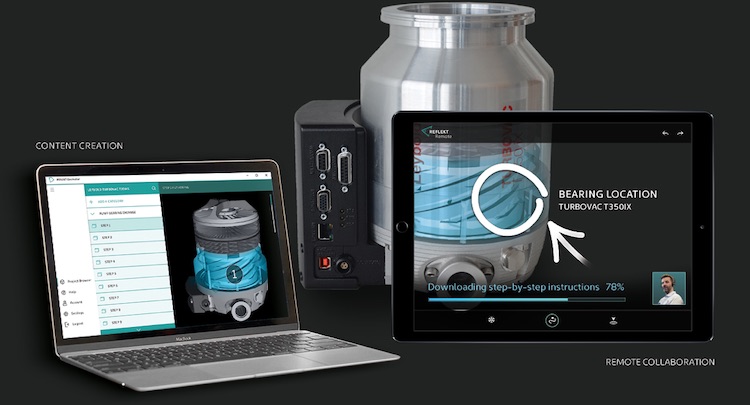
BASF leads $4.4 million funding round for Re’flect augmented reality startup
BASF Venture Capital has invested in Re’flect, a Munich and San Francisco-based Augmented Reality startup that provides enterprise customers content creation and remote expert solutions.
BASF Venture Capital’s opening investment of €3.75 million ($4.4 million) follows Bosch’s investment in the company in 2015.
“The investments from two of the world’s largest industrial companies validate our leading position in the Augmented Reality market,” says Re’flect CEO and founder Wolfgang Stelzle. “With the new funding, we will continue our strong growth and further invest in our team and products. ”
“Digital technologies are a high priority at BASF,” says Markus Solibieda, managing director of BASF Venture Capital. “We see significant benefits in using Augmented Reality for a variety of key simulation, communication, and digital learning use cases, especially related to operations and industrial processes.
“Our partnership with Re’flect further establishes value for our customers, who will be able to use Augmented Reality to improve the efficiency and effectiveness of manufacturing and industrial processes.”
Re’flect has been developing its enterprise augmented and mixed reality ecosystem since the company was founded in 2012.
Consisting of a multi-award-winning content creation platform and a remote expert solution for maintenance, training, and operations, the Re’flect ecosystem intelligently projects step-by-step instructions directly onto complex machines and systems using augmented reality.
“The Re’flect platform helps machine operators and maintenance personnel eliminate mistakes and significantly increase uptime,” says Stelzle.
Industrial companies use the Re’flect ecosystem to transform their existing CAD drawings and data from traditional technical documentation into interactive augmented reality applications for mobile devices and smart-glasses.
These applications can be used regardless of location to provide interactive user support and standardize learning and education for complex machinery and processes.
The 2020 global market potential for augmented reality applications is estimated at more than $100 billion.
Market trends such as knowledge society, connectivity, and globalization are just a few of key factors that expected to drive the opportunity for enterprise augmented reality solutions that improve communication and knowledge transfer.


